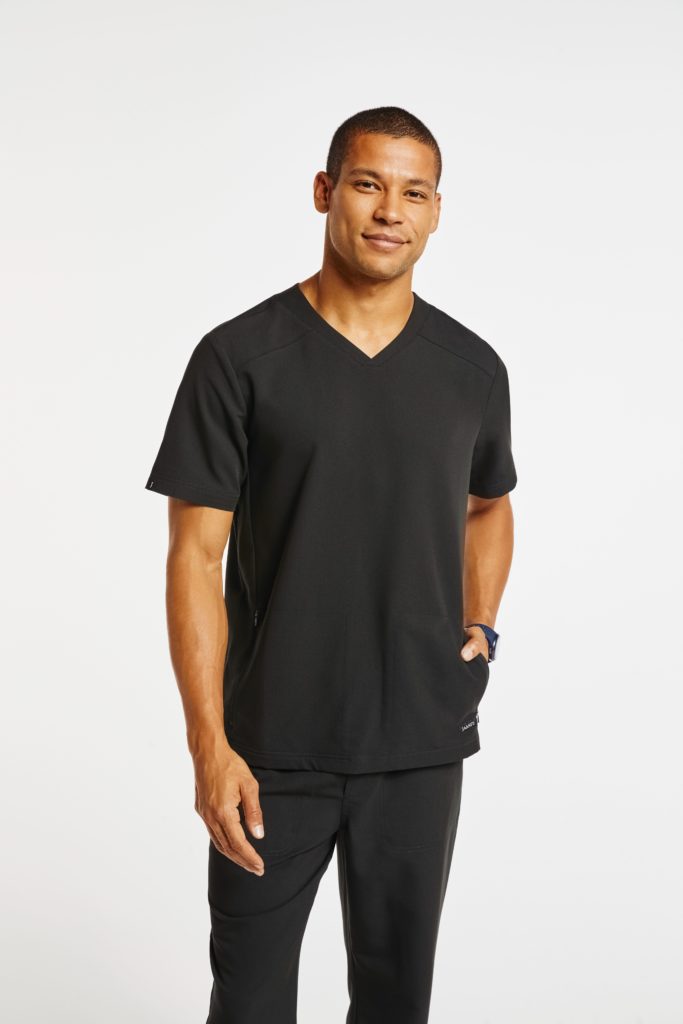
The 10 Highest Paying Nurse Practitioner Specialties
Got money on your mind? If so, we don’t blame you. After all, like it or not, it’s a major part of what makes the world go ’round. At the very least, it covers the bills. If you’ve ever thought about working in the world of healthcare but want to be decently compensated for your skills, the role of nurse practitioner (NP) could be just what the doctor ordered. This advanced role in the field of nursing comes with great responsibility. And where there is a great responsibility, there can be great salaries. But we’ll get to that in the breakdown below.
First, let’s answer a simple but essential question: What exactly is an NP? Nurse practitioners provide valuable support to physicians and even primary care to patients. When a doctor isn’t around to supervise, NPs can also exercise a great deal of authority by ordering tests, making diagnoses, prescribing medication, and creating treatment plans.
Read on to learn the compensation NPs receive for this vital work and more about some of the top-paying nurse practitioner types.
The 10 highest paying types of nurse practitioner specializations
The role of a nurse practitioner is advanced, but it’s just the beginning. The possibilities for specializations are endless. We’ll show you some of the different types of nurse practitioners with the highest salaries around in the following list. If one of these NP specialties calls to you, we’ll be there to support you!

Psychiatric mental health nurse practitioner
This role takes the cake for the highest nurse practitioner salary on our list. Psychiatric nurse practitioners work with mental health patients experiencing conditions like depression and anxiety. These specialized NPs prescribe meds and administer treatment with their advanced skill set.
Currently, the average annual salary for psychiatric mental health nurse practitioners in the United States is $143,000.
Neonatal nurse practitioner
Also among the roster of highest-paid nurse practitioners are neonatal nurse practitioners. NNPs care for premature and sick newborns, making it among the most rewarding but potentially challenging careers. NNPs often work in Neonatal Intensive Care Units (NICU), where they create treatment plans, prescribe medication, and even help during delivery.
Currently, the average annual salary for neonatal nurse practitioners in the United States is $125,000.
Pediatric nurse practitioner
Love working with kids but not necessarily in the classroom? As a pediatric nurse practitioner, you’ll help children stay healthy and develop emotionally. Plus, you’ll have one of the highest-paying nurse practitioner jobs around.
Currently, the average annual salary for pediatric nurse practitioners in the United States is $122,000.
Emergency nurse practitioner
If you need a fast-paced work environment and don’t mind the night shift, the ER needs you. You’ll need to work under pressure, but we know you can handle it. In certain states, NPs can work without supervision.
Currently, the average annual salary for emergency nurse practitioners in the United States is $114,000.
Acute care nurse practitioner
Acute care isn’t the same thing as emergency care, but it’s similar in that you’ll be working with patients who’ve experienced trauma or have rare health conditions. You’ll need to perform well under pressure and in emotionally taxing situations, but again, if this specialization calls your name, we know you’ve got it in you.
Currently, the average annual salary for acute care nurse practitioners in the United States is $110,000.
Women’s health nurse practitioner
A women’s health nurse practitioner (WHNP) specializes in reproductive, obstetric and gynecological concerns. WHNPs provide prenatal and post-pregnancy care and usually work in private practices. They may be advanced healthcare professionals, but they do not deliver babies.
Currently, the average annual salary for women’s health nurse practitioners in the United States is $100,000.
Adult-gerontology nurse practitioner
Working with the elderly implies sensitive and complex work, as many geriatric patients often experience serious and chronic conditions. NPs in this field generally work in high-intensity settings like emergency rooms, ICUs, or long-term care environments like nursing homes.
Currently, the average annual salary for adult-gerontology nurse practitioners in the United States is $110,000.
Family nurse practitioner
What is an FNP? Family nurse practitioners are well-rounded professionals who can work with patients of all ages in almost any healthcare setting they want—hospitals, private offices, or clinics. They can even have private practices.
Currently, the average annual salary for family nurse practitioners in the United States is $106,000.
Aesthetic nurse practitioner
If you want to be in the business of helping others feel better about their appearance, this role could be for you. You’ll offer treatments that fall somewhere between spa and health care services. Aesthetic nurse practitioners perform tasks like Botox injections, laser treatment, and chemical peels.
Currently, the average annual salary for aesthetic nurse practitioners in the United States is $100,000.
Orthopedic nurse practitioner
Orthopedics refers to the treatment of muscles, joints, bones, and tissues. NPs in this fieldwork with patients suffering from orthopedic disorders or requiring postoperative and rehabilitative care. ONPs can also work in sports medicine.
Currently, the average annual salary for orthopedic nurse practitioners in the United States is $100,000.

How to become a nurse practitioner
If one of these career paths seems right for you, the next step is to learn how to become an NP. Then you’ll have to specialize. Here’s how:
First things first: Choose your nursing program (and while you’re a student, be sure to take advantage of our student discounts!). You’ll need to earn a Bachelor of Science in Nursing (BSN) and your licensure as a registered nurse (RN).
Then you’ll have to earn a graduate degree like a Master’s Degree in Nursing Science or even a Doctorate of Nursing Practice.
You’ll then have to pass a standardized board certification exam and complete a set number of hours of clinical training.
We hope you’ll take your education to the next level, given the rewarding nature of the work and stellar salaries shown above for more focused careers. If you decide to specialize, you may need to obtain certification from one of the following boards:
- American Academy of Nurse Practitioners National Certification Board
- American Nurses Credentialing Center
- American Association of Critical-Care Nurses
- Pediatric Nursing Certification Board
- National Certification Corporation
No matter what specialty you work in, one thing’s for sure: Looking and feeling great in your scrubs can make all the difference while you’re on the job. But we’ve also got your back with our loungewear sets that are perfect for relaxing once you put the workday to bed.